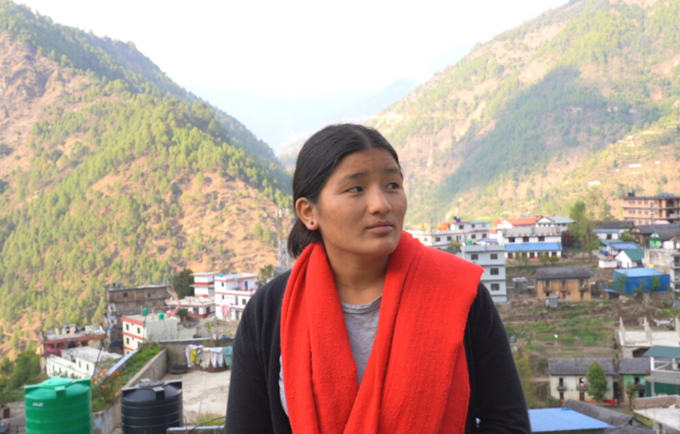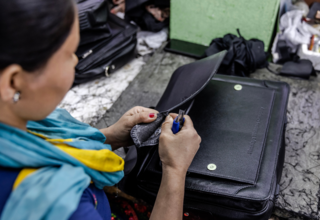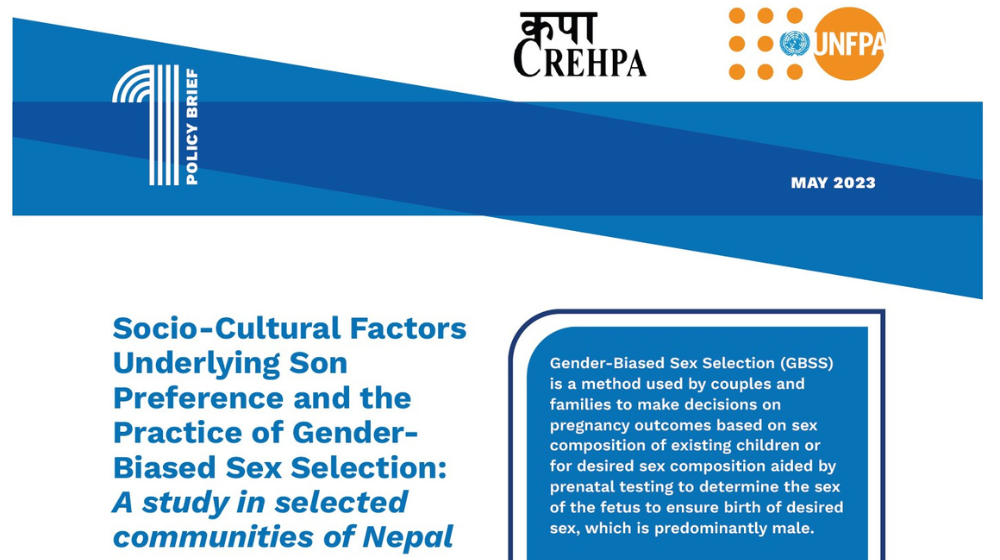In Kapilvastu district of Lumbini Province in Nepal, Babita Biswakarma, a 22-year-old dynamo has emerged as a beacon of hope and change in her community, however her early life was defined by adversity.
Raised by her single mother after her father left the family to be with another woman during her formative years, financial struggles prevented Babita from attending private school. Yet, her mother's tenacity led her to take up various odd jobs to ensure that Babita could continue her education.
“As a girl, my life was hard, with my conservative grandparents who did not believe that girls should even go to school, and instead of supporting my mother and me, they gave us so much of trouble”
During her school days, she enrolled in the Rupantaran programme - a 9 month social and likeskills package rolled out by UNICEF and UNFPA under the joint Global Programme to end child marriage. Here, her zeal and passion led her to become a facilitator, and Babita embraced this opportunity with open arms.
She reveled in the chance to empower adolescents, something she confessed she missed during her childhood, helping them cultivate confidence and gain knowledge in comprehensive sexuality education and sexual and reproductive health rights. Babita firmly believed that by equipping young minds with this vital knowledge, she was planting the seeds of a brighter and healthier future.
However, Babita's journey was not without its share of challenges, particularly when it came to conducting sessions in the local madrasa. The students often displayed shyness and hesitancy when delving into discussions about sexuality related topics. Initially, many families hesitated to grant permission for their children's participation. Babita faced this challenge head-on, engaging in heartfelt dialogues with parents to eloquently underscore the critical importance of the education their children were receiving.
She shares her highlights of her career thus far, when a young girl from the madrasa was on the brink of being married off at a tender age, which she recognised as a harmful practice she had learned about during her Rupantaran sessions (Rupantaran is a 9-months social and life skills package which covers sessions on gender equality and human rights, reproductive health, gender based violence and harmful practices among others.
Empowered with knowledge and fortified with newfound courage, the girl boldly approached her parents to discuss the grave consequences of child marriage. Babita even engaged in a conversation with the girl's parents, ultimately averting it. It was a moment of immense pride for both Babita and the girl, and an emblematic triumph of education over tradition.
Yet, Babita's aspirations extend beyond her role as a facilitator. Her dreams are woven around a vision of working for the government, driving policy-level changes that empower future generations of adolescents. Her journey is not merely a personal success story; it stands as a testament to the transformative power of education and the unyielding determination of individuals to transcend the constraints of adversity - she is determined to change that for all young girls in her community.
Babita’s message to all aspiring girls seeking inspiration and hope resonates with conviction:
"Be free, be independent, own your body, earn the trust of your parents so they may grant you peace, complete your education, unflinchingly participate and speak, learn how to protect yourself, and dare to conquer the world.”
In the picturesque hills of Rolpa in the same province of Nepal, a transformation has been underway, spearheaded by young girls hungry for knowledge and a brighter future. This transformational journey is embodied in the story of Mina Pun, another dedicated facilitator who has played a pivotal role in empowering the girls of her community through Rupantaran.
When she first started she recalls how a group of curious girls were grappling with questions about their menstruation. Secretly they would ask, "Why does it happen only to girls?" and "What should we do when it happens?"
Fast forward to the present, the landscape has transformed. The girls who once whispered their concerns about menstrual health now speak openly and confidently. Their knowledge has expanded beyond the menstrual cycle; they have learned about early marriage and the health complications it can bring, shaping their understanding of the profound impact these decisions can have on their entire lives.
The credit for this transformation is a collective triumph, a testament to the power of community-driven change. But the dedication and drive of Babita and Mina is noteworthy.
These young girls of Kapilvastu and Rolpa are charting a new course toward a brighter future, leaving behind the shadows of secrecy and stigma that once held them captive. This International Day of the Girl Child 2023, we’re highlighting girls who are daring to conquer the world, changing life not just for themselves but every other girl.



